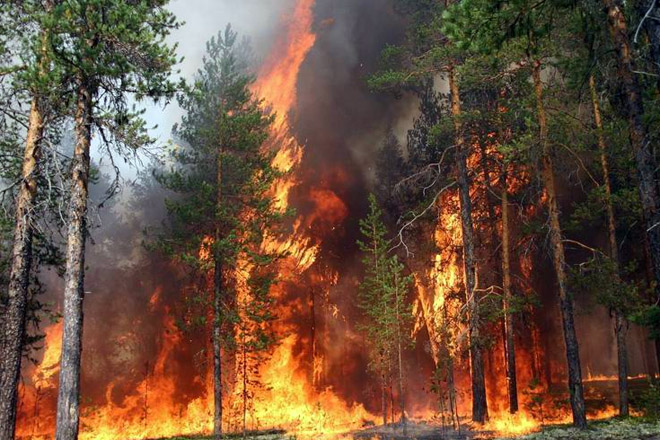Canada called for foreign help Wednesday to combat wildfires burning out of control and spreading across vast swathes of the western half of the country, Trend reports citing Al Arabiya.
The fires that have devastated the oil-producing Alberta province have in recent days spread to neighboring British Columbia and Saskatchewan as well as the Northwest Territories.
Some 2,500 firefighters from across Canada backed by 400 military personnel have been deployed across Alberta to try to tame the wildfires, which have already burned more than half a million hectares of forests and grasslands and destroyed many homes and businesses.
But they aren’t enough, officials said.
“It’s still a very significant and dangerous situation in Alberta,” federal Public Safety Minister Bill Blair told reporters in Ottawa.
Blair said the Canadian Interagency Forest Fire Center “is reaching out to foreign countries -- the United States, Mexico, Australia and New Zealand... We’re asking them to come and help us.”
Smoke from the wildfires has blanketed western Canada, leading to warnings about poor air quality posing risks to health.
In Calgary, the sky had an orange hue to it as the smoke grew thicker throughout the day.
Hundreds of kilometers (miles) to the east, residents of Regina and Saskatoon in neighboring Saskatchewan province said they woke up to a thick haze and a strong smell of smoke in the air.
Across the region, almost 180 wildfires were burning -- including 48 out of control -- forcing tens of thousands to flee over the past two weeks.
Evacuation orders and alerts were lifted in some parts on Tuesday and Wednesday, including hard-hit Drayton Valley west of Edmonton in Alberta and Fort St. John in British Columbia, as those fires were subdued.
Air quality indexes in several cities, however, indicated wildfire smoke that spread from the Pacific Coast to Manitoba province still poses a “very high risk” to health.
In recent years, western Canada has been hit repeatedly by extreme weather, the intensity and frequency of which have increased due to global warming.
This has brought floods and mudslides, forest fires that destroyed an entire town, and record-high summer temperatures that killed more than 500 people in 2021.
This spring’s mostly hot, dry weather has resulted in what Alberta leader Danielle Smith described as an “unprecedented” crisis.
As evacuees trickled back to Drayton Valley, local fire Chief Tom Thomson urged caution.
“There are still extremely hazardous areas... There are concerns about falling trees. There are concerns about ash pits,” he told a news conference.
“We do still have fire crews actively working on the fire,” he added, warning people to remain vigilant.






